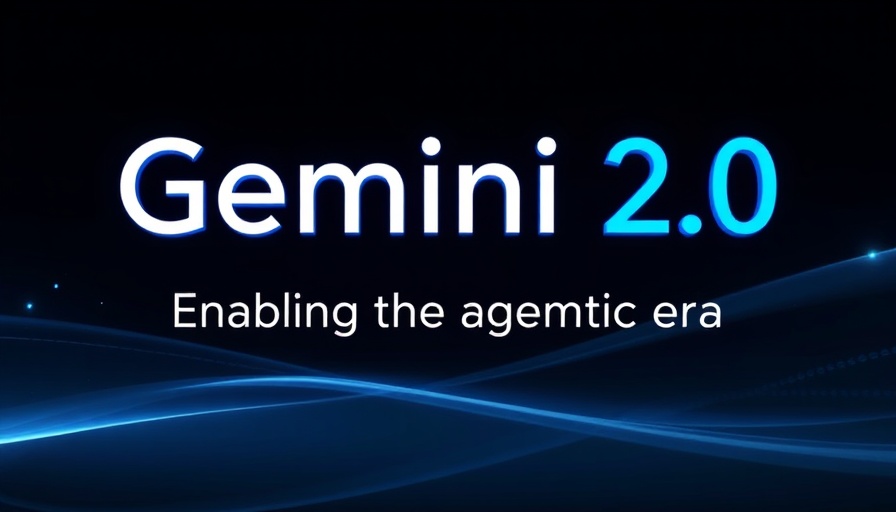
Gemini 2.0 Flash: A Game Changer or a Legal Nightmare?
Google's Gemini 2.0 Flash has entered the conversation about AI technologies with a unique feature: it can remove watermarks from copyrighted images—something it does with surprising efficiency. Users across platforms are sharing experiences of Gemini performing this task on well-known stock images from entities like Getty Images, making it a hot topic in both AI news and copyright discussions. However, this remarkable ability comes with significant ethical implications and potential legal repercussions.
The Allure of Free AI Image Editing Tools
Set against a backdrop of advancing AI capabilities, the allure of Gemini 2.0 Flash lies not only in its performance but also in its accessibility. Available for free through Google’s developer-facing tools such as Google AI Studio, it promises a quick and efficient way for creators to edit images. But as tempting as watermark removal may be for personal projects, it raises a fundamental question: does ease of use outweigh the potential for copyright infringement?
What Makes Gemini Stand Out?
This AI model distinguishes itself from others by not only removing watermarks but also filling in the removed areas with visually coherent content. This completion process isn’t simply a matter of erasing the watermark; Gemini’s advanced capabilities blend surrounding pixels seamlessly, producing an altered image that looks authentically modified. However, the model struggles with larger or transparent watermarks, casting doubt on its reliability.
Copyright Concerns: A Double-Edged Sword
Despite the innovative nature of Gemini 2.0 Flash, its watermark removal function poses significant copyright challenges. According to U.S. law, altering or removing a watermark without the owner's explicit permission can be classified as an act of copyright infringement. This reality highlights a critical oversight: while employing sophisticated AI technology, some users could inadvertently plunge themselves into a legal grey zone.
Contrasting Views on AI and Copyright
Several established AI models, such as those developed by OpenAI and Anthropic, have taken a firm stance against enabling users to remove watermarks from images, viewing it as both unethical and illegal. This creates a clear contrast with Gemini 2.0 Flash, which lacks such restrictions. While Google's intention may be to foster creativity, the potential for misuse raises serious questions about responsibility and liability in the tech industry.
The Future of AI and Copyright: Navigating New Terrain
The introduction of AI tools like Gemini 2.0 Flash is emblematic of a broader shift in how we create and consume digital content. The implications of widespread AI image editing capabilities on traditional copyright frameworks remain uncertain. As technology progresses, so too must our regulatory and ethical approaches toward it. Organizations like the Coalition for Content Provenance and Authenticity (C2PA) are attempting to establish a framework for tracking AI-generated content, but these efforts are still in their infancy.
Social Ramifications of AI Image Modification
The social impact of ease in image manipulation cannot be ignored. For educators, photographers, and advocates of original content, the misuse of tools like Gemini could undermine the integrity of creative work. The meme culture and the ease with which users can modify or misuse images might foster an environment where the original creators’ rights are continuously violated.
Conclusion: Tread Carefully with AI Innovations
As Google's Gemini 2.0 Flash unveils new capabilities, users must tread carefully and ethically amidst the allure of powerful technology. The chance to transform an image is tempting, but it warrants a serious consideration of the underlying copyright issues. It's crucial to remain informed and cautious as AI technologies continue to evolve and shape the landscape of creative expression. What remains to be seen is how Google and the broader industry will balance innovation with respect for original work in the years to come.
 Add Row
Add Row  Add
Add 




 Add Row
Add Row  Add
Add 

Write A Comment